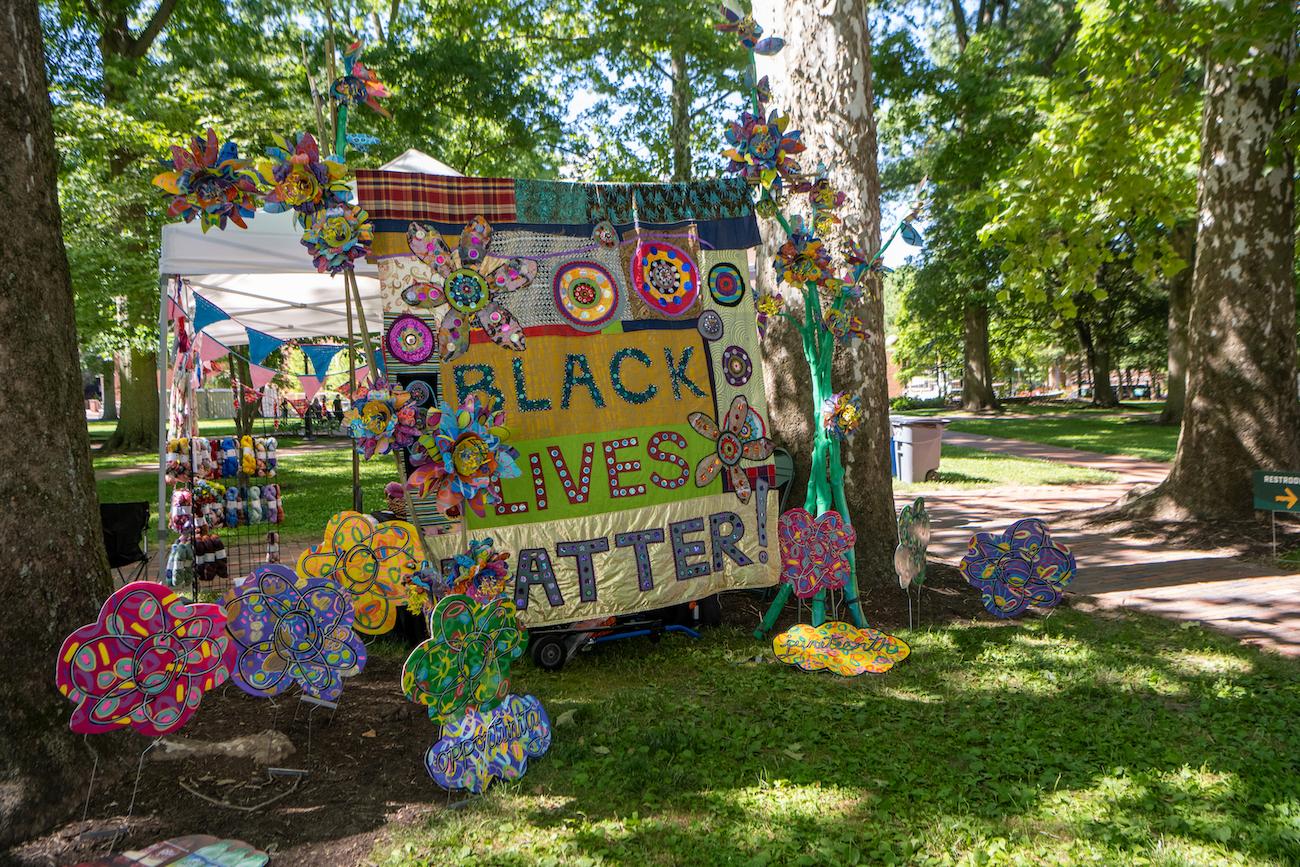

Juneteenth, celebrated on June 19th each year, marks our country’s second Independence Day. Although Juneteenth has long been celebrated in the African American community, this monumental event remains largely unknown to most Americans. Annually, starting in June 2021, Ohio University celebrates this occasion with programming and activities. This year's event is being hosted in partnership with the City of Athens, Athens County Foundation, Racial Equity Coalition of Appalachia, Athens NAACP, and Mount Zion Black Cultural Center.
Schedule of Events
Thursday, June 19, 2025
-
Black History Tour
Time:10:00 a.m.
Location:Begin at Baker CenterStart your Juneteenth celebration with a Black History Tour of Athens County!Join local experts from the Mount Zion Black Cultural Center for the Heritage Square Tour in Uptown Athens on Thursday morning, followed by an opportunity to visit the Tablertown People of Color Museum in the afternoon before returning to College Green for the Juneteenth Festival!
The uptown walking tour begins at 10AM at Baker Center, travels up Court Street to the Mount Zion Baptist Church on Carpenter Street, then back down Congress Street before culminating back at Baker Center.
Participants will have a break for lunch uptown on their own, and vans will depart for Tablertown at 12:15PM
-
Juneteenth Festival
Time:3:00 p.m. - 6:00 p.m.
Location: Due to the threat of thunderstorms, the Juneteenth Festival is moving to the Athens Community Center. The Community Center is accessible via Athens Public Transit, but please send us a message at communityengagement@ohio.edu if transportation from campus is needed.The Juneteenth Festival will include music, food and merchandise vendors, and activities for children. Feel free to bring lawn chairs and blankets, water, and sunscreen, so you can hang out and enjoy the live music!
-
Volunteers Needed!
If you would like to volunteer during the 2025 Juneteenth Festival, please register:
-
Juneteenth Festival Vendor & Tabling Requests
If you would like to request a vendor spot or table during the 2025 Juneteenth Festival, please register:
About Juneteenth
On “Freedom’s Eve,” or the eve of January 1, 1863, the first Watch Night services took place. On that night, enslaved and free African Americans gathered in churches and private homes all across the country awaiting news that the Emancipation Proclamation had taken effect. At the stroke of midnight, prayers were answered as all enslaved people in Confederate States were declared legally free. Union soldiers, many of whom were black, marched onto plantations and across cities in the south reading small copies of the Emancipation Proclamation spreading the news of freedom in Confederate States. Only through the Thirteenth Amendment did emancipation end slavery throughout the United States.
But not everyone in Confederate territory would immediately be free. Even though the Emancipation Proclamation was made effective in 1863, it could not be implemented in places still under Confederate control. As a result, in the westernmost Confederate state of Texas, enslaved people would not be free until much later. Freedom finally came on June 19, 1865, when some 2,000 Union troops arrived in Galveston Bay, Texas. The army announced that the more than 250,000 enslaved black people in the state, were free by executive decree. This day came to be known as “Juneteenth,” by the newly freed people in Texas.
Source: National Museum of African American History and Culture. (2020). Historic Legacy of Juneteenth . Retrieved online.
Learn more about the Historic Legacy of Juneteeth by visiting the National Museum of African American History and Culture website.


